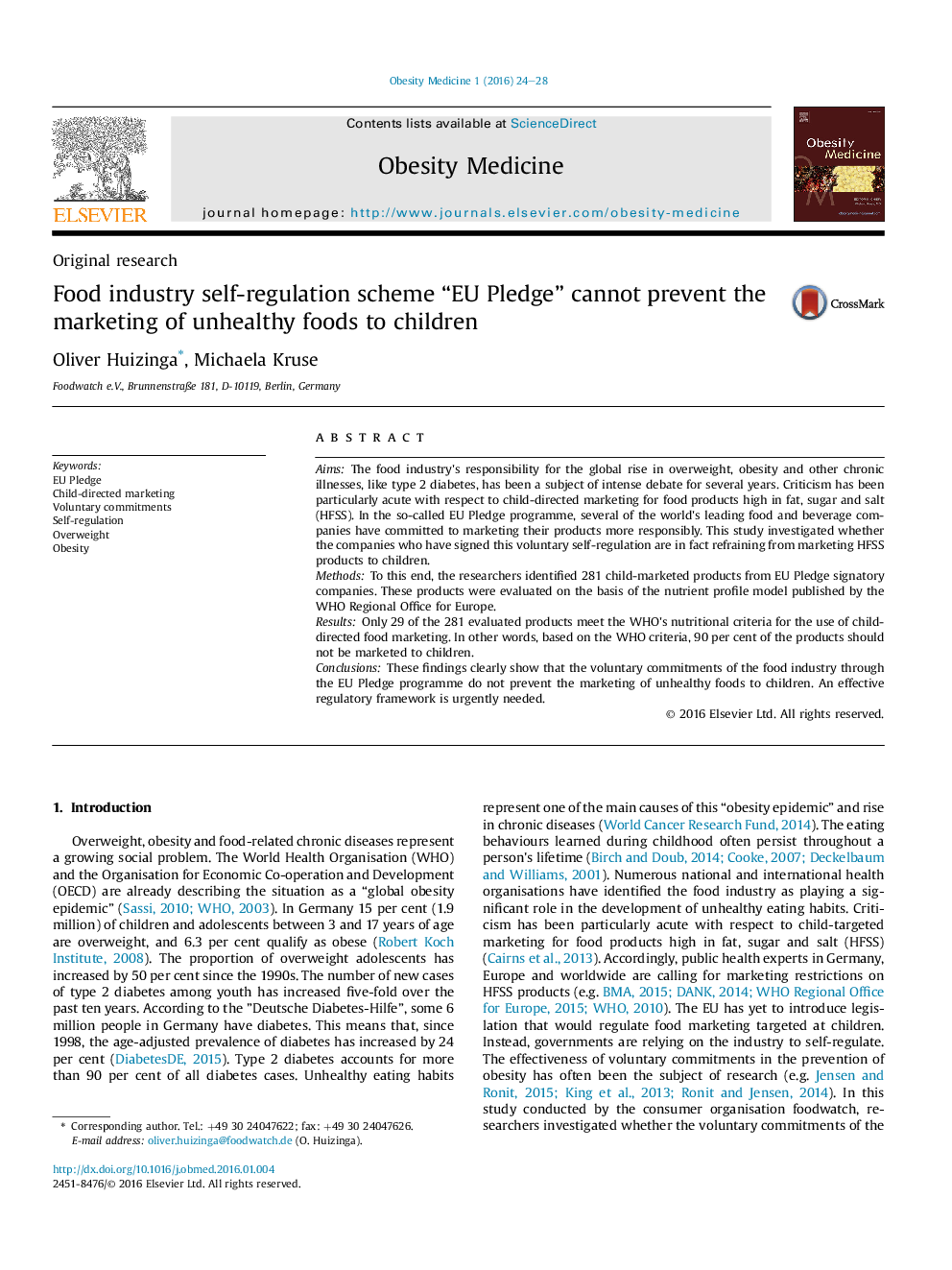| Article ID | Journal | Published Year | Pages | File Type |
|---|---|---|---|---|
| 1097083 | Obesity Medicine | 2016 | 5 Pages |
AimsThe food industry's responsibility for the global rise in overweight, obesity and other chronic illnesses, like type 2 diabetes, has been a subject of intense debate for several years. Criticism has been particularly acute with respect to child-directed marketing for food products high in fat, sugar and salt (HFSS). In the so-called EU Pledge programme, several of the world's leading food and beverage companies have committed to marketing their products more responsibly. This study investigated whether the companies who have signed this voluntary self-regulation are in fact refraining from marketing HFSS products to children.MethodsTo this end, the researchers identified 281 child-marketed products from EU Pledge signatory companies. These products were evaluated on the basis of the nutrient profile model published by the WHO Regional Office for Europe.ResultsOnly 29 of the 281 evaluated products meet the WHO's nutritional criteria for the use of child-directed food marketing. In other words, based on the WHO criteria, 90 per cent of the products should not be marketed to children.ConclusionsThese findings clearly show that the voluntary commitments of the food industry through the EU Pledge programme do not prevent the marketing of unhealthy foods to children. An effective regulatory framework is urgently needed.
